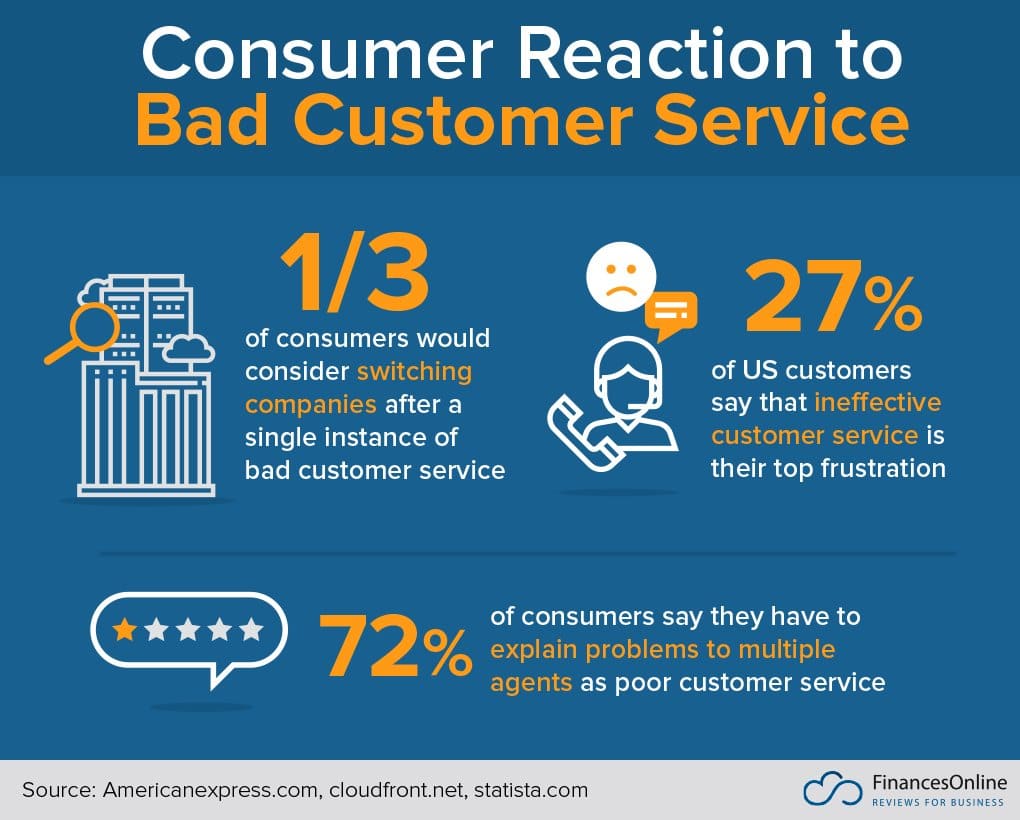No businesses want to start off on the wrong foot with their customers. Call centre agents being the first touchpoint, play an indispensable role in developing a positive, long-term business relationship with customers. Companies that underline customer experience outperform other competitors by a staggering 80% in the rest of their industries.
As customers are becoming more demanding these days, call centre agents must approach them with appropriate call centre etiquette, so those customers feel supported and cared for. These ten customer courtesy tips will help your call centre agents deliver outstanding customer service and help grow brand loyalty simultaneously.

Source: Unsplash
1. Be polite
Expressing politeness is the fundamental rule for every call centre agent to follow. A friendly attitude can positively impact customers no matter which channel you use to assist.
Start with a warm greeting, then ask for their name. Remember always to pronounce their name correctly and address them consistently throughout the whole support session. And don’t forget to include a please or thank you at the end when you request customers to perform any action.
Even though you are providing services via phone, always speak with an upbeat and calm tone. This way, you are sending customers a confident impression while alleviating their anxiety over the problems they are facing at that moment.
2. Demonstrate professionalism
Call centre agents should always maintain a level of professionalism throughout the whole conversation. Professionalism includes being knowledgeable about products and services customers are enquiring about.
It also includes understanding your customer profile. Customers get frustrated when a representative does not have immediate access to account information. With customer relationship management (CRM) software, contact centre agents can provide personalised customer service where they see fit, which further intensifies customer satisfaction.
People are 40% more likely to spend more than planned when they identify the shopping experience to be highly personalised. Consumers are also 40% more likely to view items that are recommended based on information they’ve shared with the brand.
Another way to exhibit professionalism is by keeping a list of available resources, such as an online knowledge base. In fact, the majority of customers said they would use an online knowledge base if available and tailored to their needs.
Apart from solving customers’ problems on the spot, they can also mention where to find additional information for specific questions to minimise customers’ angst and negative emotions further.
3. Be respectful
All customers should be treated with respect. This includes understanding your customer’s needs, addressing their issues with compassion, and displaying patience towards their questions.

Source: Unsplash
When you are faced with a bad tempered customer, always start by saying, “Oh! How awful, you have the right to be upset.” or “I understand your frustration,” so they know that the company cares about their customers.
It would be best to also respect your customer’s valuable time by providing solutions in the shortest period. 51% of consumers expect a response from a call centre agent in under five minutes.
Therefore, once you identify the cause of your customer’s problem, you might provide available resources like videos or FAQs for quick fixes. Do not express any negative tone or irritation when customers are demanding more questions. Call centre agents should always avoid getting into a verbal argument with customers because that could paint a terrible brand image.
4. Be honest about the unknown
Call centre agents should always be honest about what they know and don’t know. It’s unprofessional when an agent lies or makes up an answer to a question that they have zero ideas of.
If you don’t have the correct answer, politely explain to your customers that you will seek another colleague or manager who can better attend to their needs. Hold times are unavoidable in some situations. And while you put customers on hold, always make sure you check in with them every one or two minutes, so they know you’re proactively seeking help for them.
There are various polite ways to communicate hold times with customers. You can say, “Sorry to keep you waiting; I’m still looking up your information but will get back to you with an answer quickly.” Or “I apologise for your inconvenience. I will have an answer for you in just a moment.”
Many consumers have experienced being transferred from agent to agent without any resolution of their problem. To avoid this awkward situation, the customer service department should run employee training programmes regularly and keep every call centre agent updated about the right person to turn to if a particular question can’t be solved on their own.
5. Be trustworthy
Building trust with your customers is a lengthy but necessary process for all businesses. By establishing a trustworthy brand impression through your call centre agents, you are indirectly increasing positive brand awareness and customer loyalty at the same time.
Loyal customers are more likely to repeatedly purchase from a company they trust and become an advocate for the brand. During a customer support session, call centre agents should try to explain everything in plain language to the customer and walk them through a step-by-step troubleshooting process if necessary.
Agents should also highlight both pros and cons when proposing various options to their customers. It’s essential to empower customers with thorough information to help them make informed decisions. When you involve customers in the problem-solving process, you are handing the power over to them under circumstances where they’re aware of all the possible alternatives.
One advantage of laying out all the customer’s options is to help minimise confusion for later purchases. When customers know they are making educated and informed decisions, it helps increase customer satisfaction for businesses.
6. Exhibit confidence
Confidence is the key to productive and successful communication. As a call centre manager, you can offer training courses that teach your staff how to respond to stressful situations such as being lashed out at by an angry customer.
Call centre agents can also grow their confidence by using professional vocabularies or communicating with a positive attitude. However, it would be best if you avoid technical or product-specific jargon as these might confuse customers even more. A confident call centre agent is able to handle challenging or pressured situations with a calm mindset and effective solution.
Be clear on the action you wish your customers to take and explain the reason behind it so customers can develop a sense of expertise with you. Most customers expect their issues to be resolved swiftly. Troubleshooting efficiency is oftentimes the number one factor of a great customer experience. 27% of Americans report “lack of effectiveness” as their number one frustration with customer service.
It’s vital that call centre agents meet their customers’ expectations while offering practical advice or suggestions without losing their calm. A customer service manager can provide regular stress management tips or courses to create a better working environment and happy employees.

Source: Unsplash
7. Go the extra mile
Customers appreciate when the brand prioritises their needs. Call centre agents willing to put in extra effort for customers win over more customers at the end of the day.
Additional measures that contact centre agents can employ include offering a discount or coupon voucher, rectifying a billing error, modifying the quantity of an order, expediting shipping delivery time, and more. It could also mean predicting other customer questions and providing comprehensive information to help them make better decisions.
For example, suppose you are resolving a technical issue for your remote customer by utilising a remote access tool. In that case, you will troubleshoot the problem without wasting the customer’s time through technical steps that could further irritate the customer. In addition, you can take a holistic look at other potential malfunctioning risks and make sure everything is working correctly.
A well-trained call centre agent plays a vital role in predicting needs and identifying customer pain points competently. By taking the initiative to offer extra care to your customers, they will feel valued and appreciated. In the long term, customers can associate your brand with exceptional customer service, which can serve as a competitive advantage for your business. 73% of companies with above-average customer experience perform better financially than their competitors.

Source: FinancesOnline
8. Engage in active listening
Be an active listener to your customers. A call centre agent’s work can be monotonous as one needs to respond to phone calls and (mostly) customer complaints all day long. Nevertheless, you can make a positive twist out of it by taking genuine interest in your caller’s enquiry. Active and effective listening also includes:
- Demonstrating better understanding
- Letting customers talk without interruption
- Reflecting and paraphrasing questions to weed out any information gap
- Asking relevant questions
Pay extra notice to non-verbal cues if you’re offering services via video calls.
Occasionally, call centre agents can ask personal questions to establish a connection and make the troubleshooting session more enjoyable for both the caller and the staff. Call centre agents can also express concerns and empathy regarding the problem. While actively listening to customers’ problems, make sure to take notes so you can gather critical information about your brand’s product and services.
Moreover, Agents should use verbal affirmations such as “I see”, “I understand what you just said,” to constantly remind customers of their presence. Active listening has been considered a must-have skill for all call centre agents.
After resolving issues for customers, asking for feedback can also help your business optimise and grow in the long term. 81% of consumers who rate a “very good” customer experience are “very likely” to trust that company.
One thing to note when engaging in active listening is not to get personal. Call centre agents shouldn’t add personal comments or emotional opinions when communicating with a customer. It’s recommended to keep the proper distance and adjust your behaviour accordingly based on the customer’s reaction. In addition, keeping an unbiased stance helps agents resolve problems more efficiently.
9. Be flexible
Call centre agents need to be mentally prepared for solving a myriad of customer issues. Therefore, agents should always stay flexible and keep customers informed about the latest product or service change.
As omnichannel support is becoming the new normal for most contact centres, agents should also be more agile in switching to different channels during a support session.
One way to stay versatile is by adapting to your customer’s communication style—consumers contact agents for various reasons. And every individual has their preferred method of engaging in a conversation.
When an agent notices that the customer wants to make small talk, they should go with the flow and try to use a smoother way to ask for their reason for calling. On the contrary, if the customer sounds agitated and impatient, it’s best to pinpoint the issue and offer an effective solution right away.
10. Summarise conversations
Last but not least is to summarise all the essential points for your customers before starting the problem-solving process. Facilitating a mutual understanding between you and the customer helps ensure a more streamlined communication experience.
Most importantly, it shows the customer that you are listening carefully to all their problems, ultimately leading to higher customer satisfaction.
Upon finishing a call, address the problem that’s been solved earlier and ask politely if there’s anything else you can help the customer with. This can further serve as a customer-centric gesture for the caller, knowing that the brand genuinely cares about their needs. Call centre agents can also feel a sense of achievement and proudness when they hear customers expressing gratitude to them.

Improve customer experience by always staying courteous
Providing quality services is gradually becoming the number one priority for call centres. Whether customers are contacting your brand via phone calls, social media, or chatbot, you should always make sure they receive the proper etiquette from your call centre agents.
In addition, customer support managers should solicit necessary training and monitor each individual’s performance to recognise areas that need improvement.
All agents should follow these customer service tips, build a positive brand image, and maintain excellent business relationships with customers. These efforts will undoubtedly lead to a more substantial customer experience and tremendous company success in the future. Start driving your customer satisfaction with these ten customer courtesy tips today!
Originally published Jul 08, 2021, updated Jan 16, 2023
